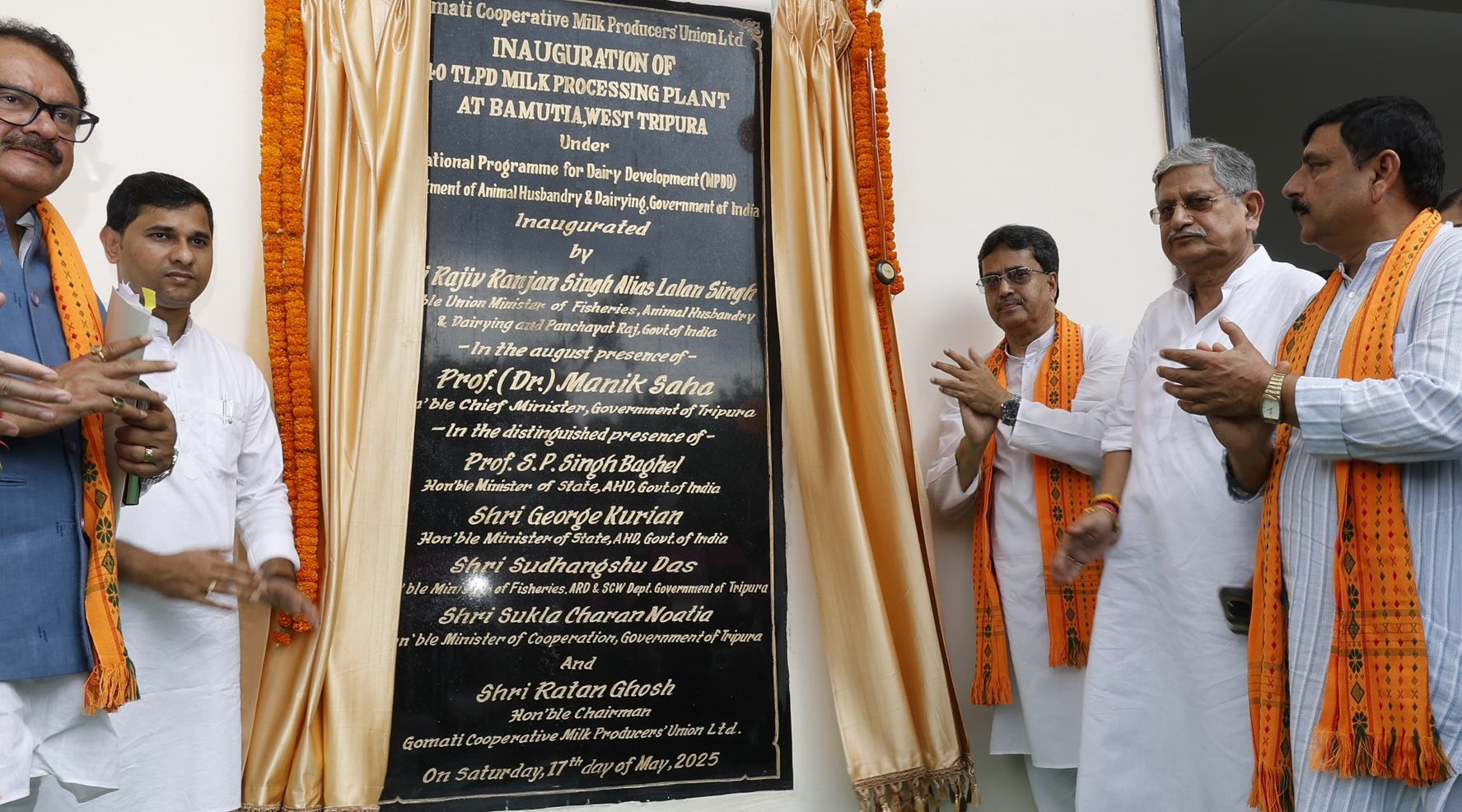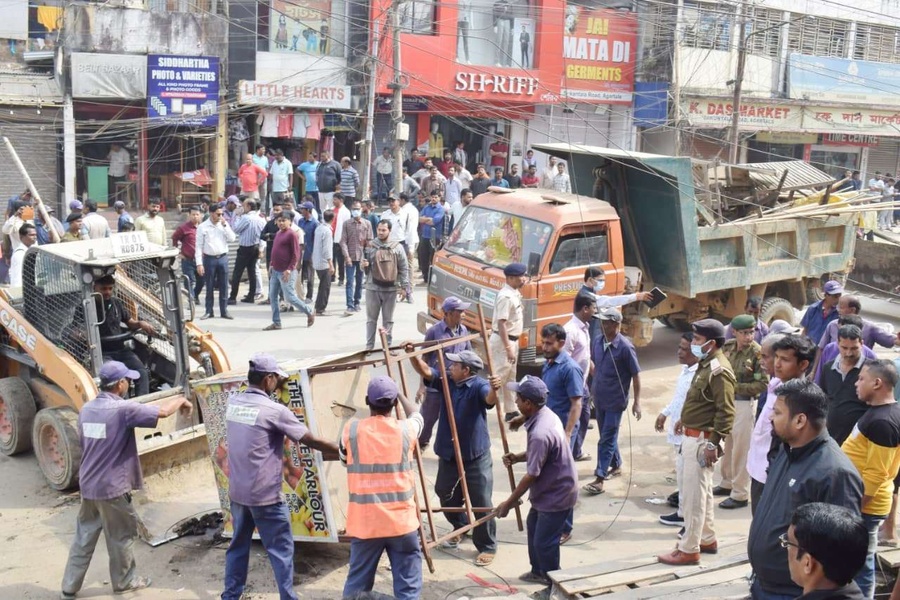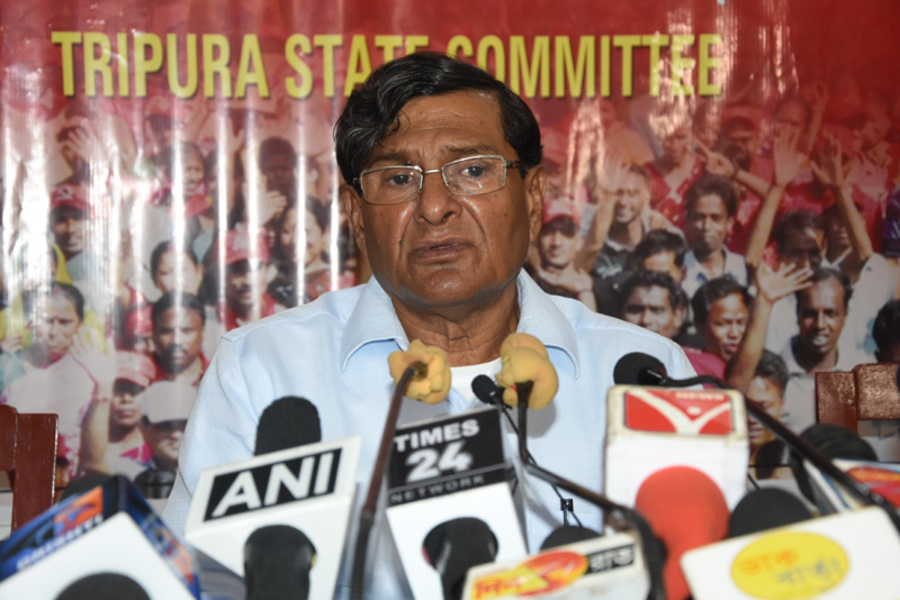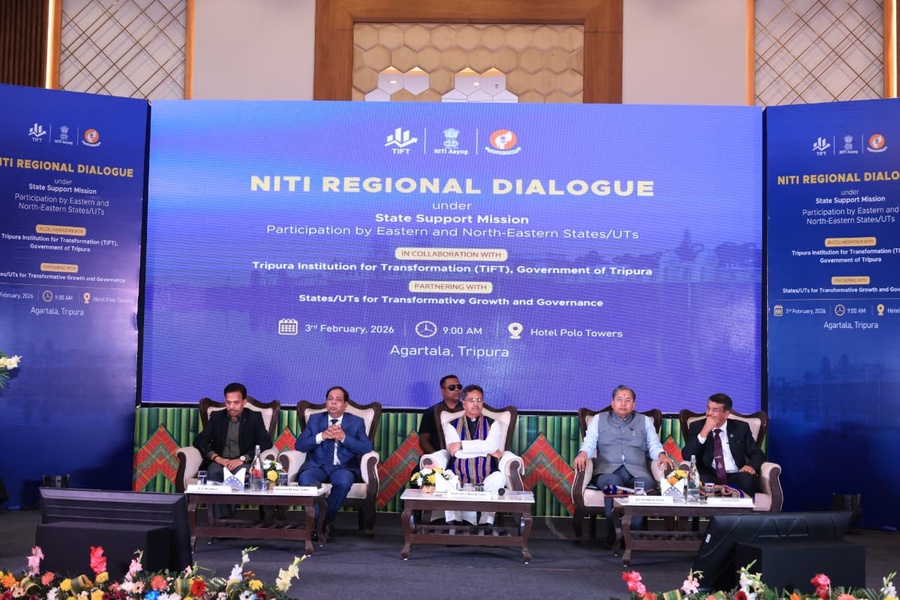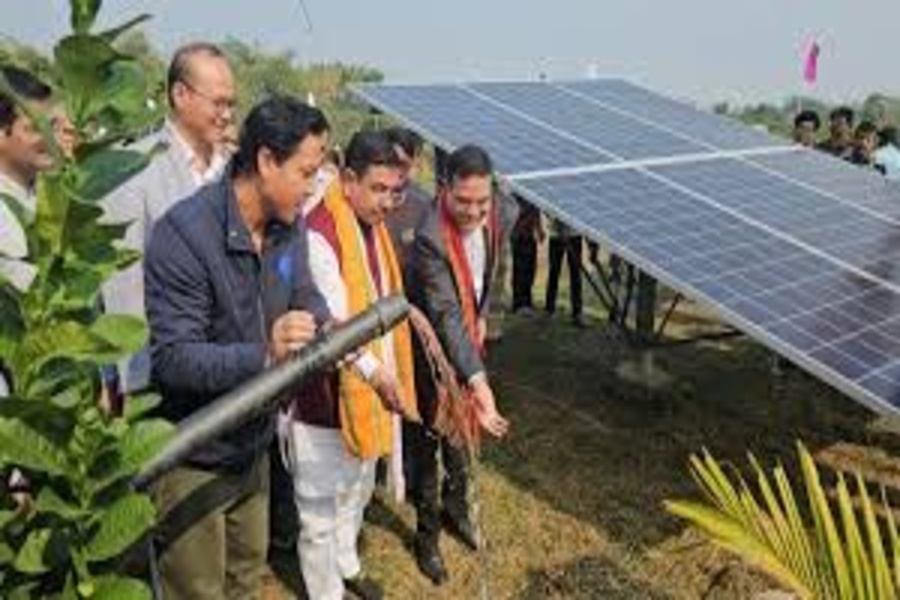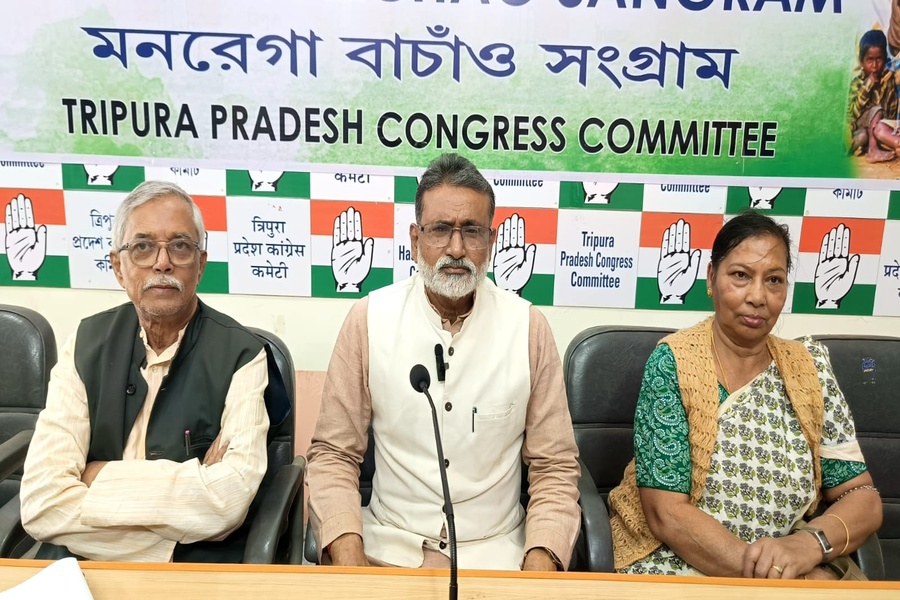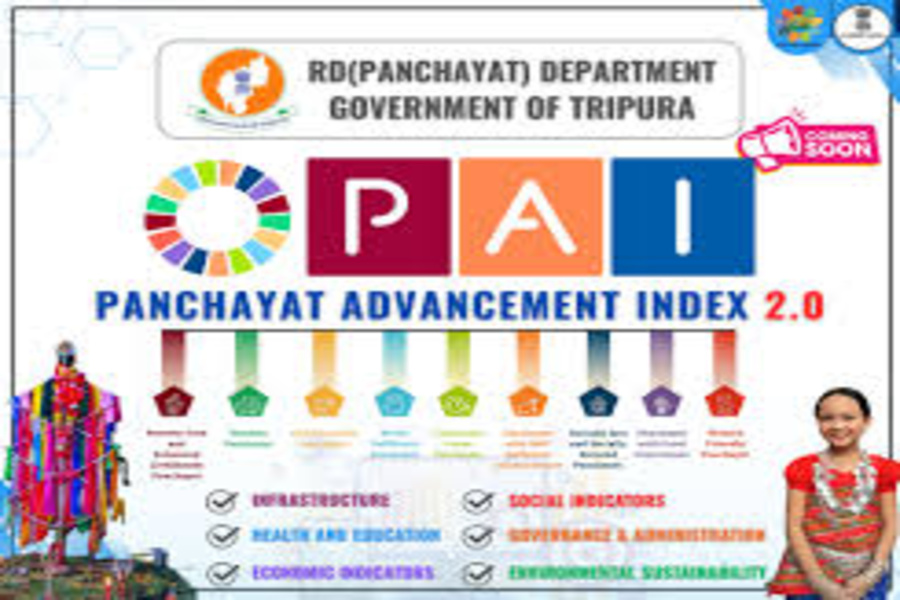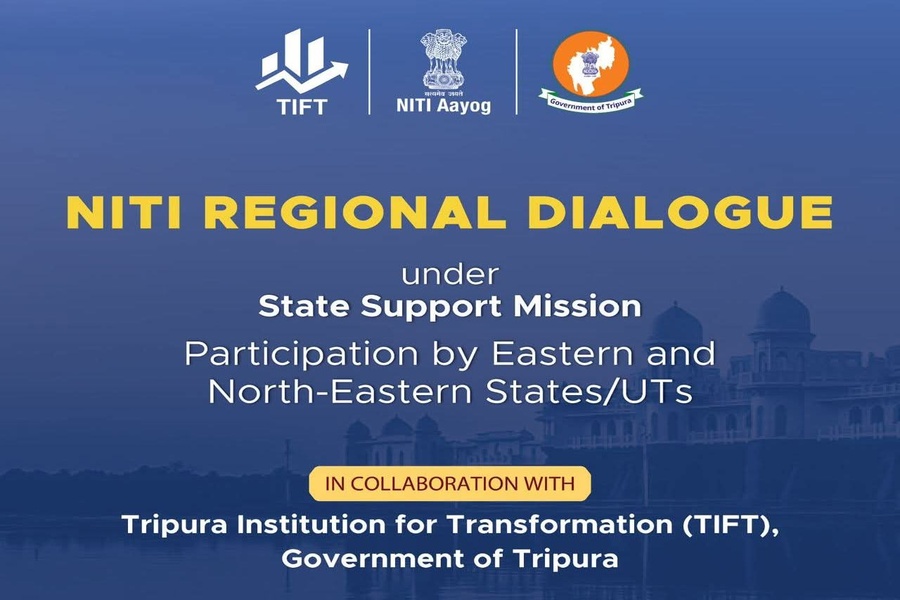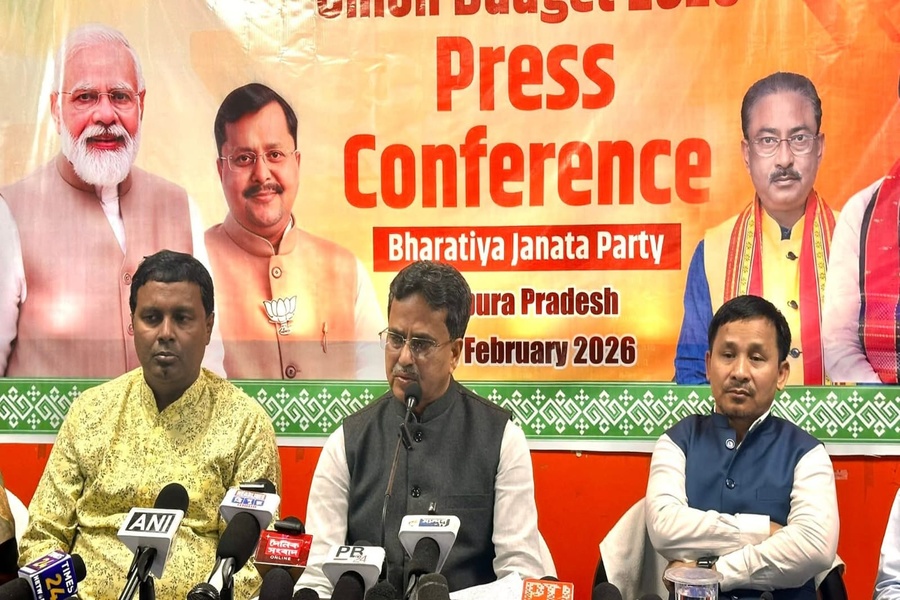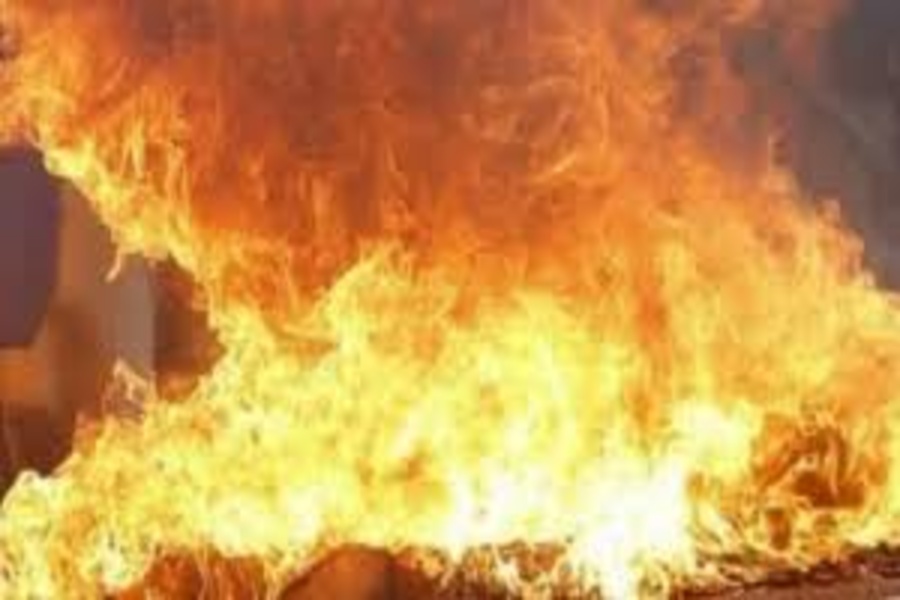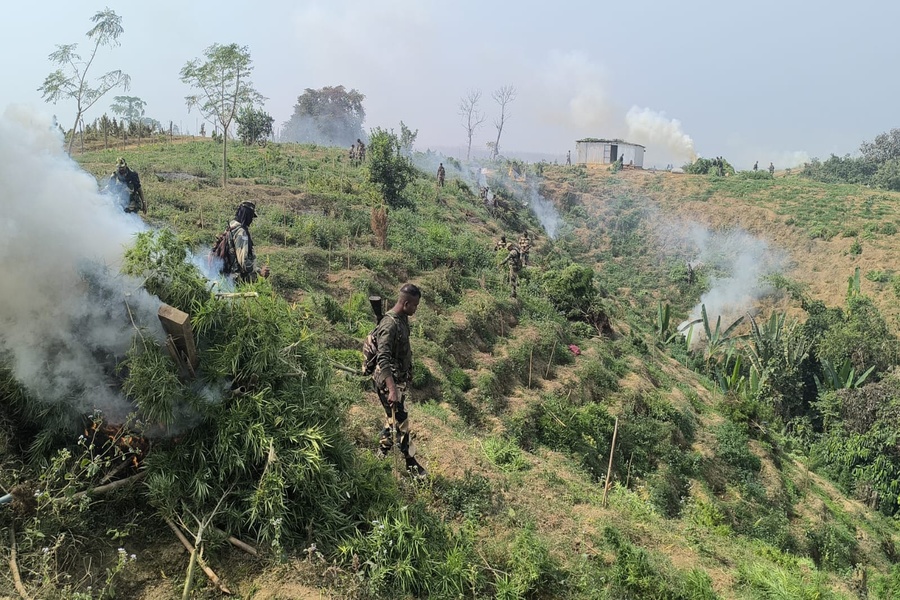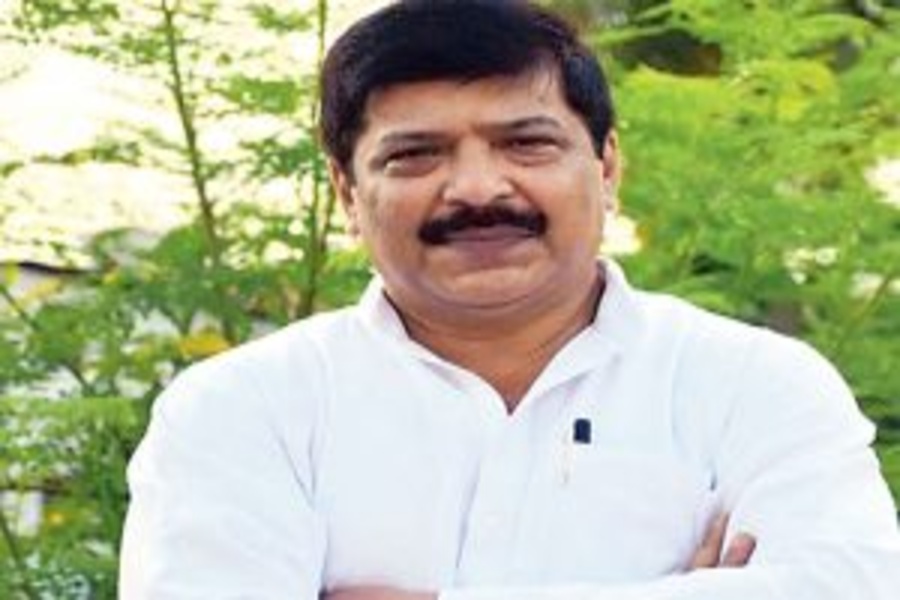Tripura Chief Minister Prof. Dr. Manik Saha saturday announced an ambitious five-year roadmap to achieve self-sufficiency in the production of fish, meat, milk, and eggs in the state.
Speaking at the inauguration of Dairy Unit-2 in Bamutia, Dr. Saha said the Animal Resources Development Department is working diligently to meet this target. The newly launched unit, with a processing capacity of 40,000 liters, was inaugurated in the presence of Union Minister for Animal Husbandry and Dairying, Rajiv Ranjan Singh. The project has been developed under the National Programme for Dairy Development.
"The government has placed special emphasis on animal husbandry alongside agriculture and horticulture. Rural financial development through livestock and dairy farming is a key priority," said the Chief Minister.
He added that the state government has provided land for the project, which was built at a total cost of ₹22 crore—of which ₹19.41 crore was funded by the central government and ₹2.60 crore by the state.
“Today is a proud moment for Tripura. This is our second major dairy unit after Indranagar. Such projects are only possible through teamwork, and I commend the coordination between the Animal Resources and Cooperative departments,” said Dr. Saha.
The new dairy unit is expected to benefit residents across West Tripura, Khowai, Sepahijala, Gomati, and South Tripura districts. It will produce a variety of high-quality dairy products including milk, curd, paneer, lassi, and ice cream.
Dr. Saha stressed the importance of improving the supply chain from producers to consumers, maintaining product quality, and strengthening the marketing system. He also called for skill development training for officials and workers involved in the sector.
“Our Prime Minister Narendra Modi has given priority to skill development. We need to focus on village-based milk collection and promote animal husbandry. Increased sales will translate into better incomes for farmers. This unit will also create new employment opportunities,” he added.
Dr. Saha concluded by underlining the importance of strengthening the cooperative and animal husbandry sectors to uplift rural livelihoods and ensure holistic socio-economic development in the state.

